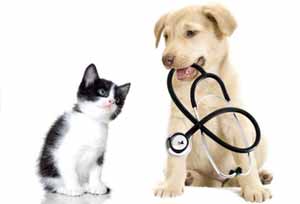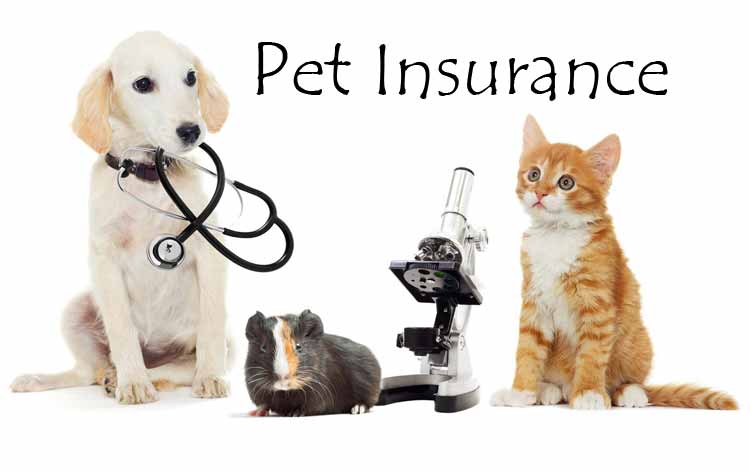Do you have the pet insurance for your dog and cat? For most of us, pets are part of our family. And just like our kids and loved ones, they deserve to have the best medical care and insurance policy.
But do you have any idea about the pet insurance cost?
Regardless of the kind of pet that you own, you’ll have to spend on their medical care, such as vet visits, immunization, spaying, neutering, as well as emergencies. Getting the best pet insurance can help you save money when it comes to the medical care of your pets.
What Can Affect Pet Insurance Cost?
Premium refers to the amount that you’ll pay for the cost of the insurance policy, whether it’s health insurance, homeowner insurance, car insurance, or pet insurance. The cost of the premium will vary depending on certain factors.
You are probably aware of the factors that could affect the premiums on car insurance. These include speeding, DUI, etc. As for health insurance, factors like age and smoking habits could affect the cost of the premium.
What about pet health insurance? Do you know what factors could affect the overall cost of the premium? Let’s find out.

Pet Insurance
Cost Factors
Below are some of the most common factors that could affect the premium of pet insurance. Take note that these factors will vary depending on the pet insurance companies.
1. Gender
The gender of the pet may also affect the pet insurance cost. According to data, there are more claims that were submitted for male pets compared to their female counterparts. Thus, female pets are generally considered “low risk,” which is why their premiums are often cheaper.
2. Species
Generally, premiums on dog insurance cost more than cats. Dogs are usually bigger compared to cats. Therefore, their medical needs will cost more since they need higher doses of medicine, etc. There are more claims that have been requested for dogs according to statistics.
3. Breed
The breed of the pet is also an important factor in the computation of premium. That’s because the predisposition of the pet is sometimes dependent on its genetic conditions. For instance, a Rottweiler is more likely to need more surgery than Cocker Spaniels or Shi Tzu. German Shepherds and Rottweilers will also require costly surgeries for conditions like hip dysplasia and cruciate injuries.
4. Location
Your location will also have an impact on the cost of dog health insurance. Metropolitan areas usually have a more expensive veterinary cost. But this may also mean better and more advanced medical care for your dog. Of course, the vet will also charge more due to the higher cost of living in metropolitan cities.
5. Age
Just like the health insurance premiums of humans, age is an important factor that could affect the cost of a pet’s insurance premium. The older the pet, the more the premium will cost since older pets tend to get sick very easily.

Dog Insurance
Dog Insurance vs. Cat Insurance
When compared to the health pet insurance of cats, the cost of dog health insurance is generally more expensive. This is based on the premise that more claims have been filed for dogs if we look at statistics. Also, the cost of veterinary care for dogs is usually more expensive.
Affordable Pet Health Insurance
When it comes to pet health insurance, it’s important to know that there is definitely no one-size, fits-all approach. It is best to choose the insurance plan that will allow you to personalize certain variables, such as maximums, deductibles, etc. That way, you can come up with something that fits your budget.
Here are some of the most important things to consider when looking for pet insurance for dog and other animals:
• How the claim reimbursements will be calculated?
• Annual limits versus per-incident limits.
• Annual deductible versus per-incident deductible.
Policy Types
You’ll have different options to choose from when it comes to the pet health insurance policy. Here are some of them:
• Annual Policies
These are considered “bread and butter” policies, which can be renewed yearly. They can cover any conditions that would arise, as well as accidents that will take place within the 12-moth time frame.
You can still continue to claim if you will renew the policy, however, some insurers don’t provide renewal terms for this type of insurance. What’s more, annual insurance policies will usually come with limits on the number of claims that you can request in a year.
So, for instance, the policy has a limit of $2,000 for medical treatment and for a 12-month period starting from the time of treatment. If you will require 12 months treatment for your pet, you’ll need to renew the insurance policy at a certain point.
And if you’re going to renew, you can only continue to claim if you have not yet reached the cash or time limit that was set for the previous policy. It’s worth noting that if you have decided to deal with a new insurance provider, the new policy that you will take will not include the illness for which your pet had suffered from while you had that old policy.
• No Limit Policies
A better alternative is the plan that doesn’t come with a time limit and will pay a maximum amount for every condition and with no limit to time.
For instance, you can claim $3,000 worth of treatment regardless of the number of years. Its coverage is more generous, which also explains why the premium for this type of pet health insurance is usually higher.
• Lifetime Policies
Of all the insurances for pets, Lifelong insurance is considered the most comprehensive of all. Thus, it also comes with a hefty premium.
For this insurance, your pet will be covered all throughout its lifetime, but up to a certain amount of cash for every year just make sure to renew it. If you’ll reach the limit for cash for such a policy, you won’t receive any more cash payments if you haven’t renewed the policy just yet.
The biggest advantage of choosing this policy is that you’ll be able to make a claim several times for the same condition. However, it’s also worth noting that the insurer has every right to increase the premium for every renewal made.
• Accident-Only Policies
If you’re looking for the cheapest dog health insurance, the accident-only policy might suit you best.
Since its coverage is only limited to those injuries incurred during an accident, such as when a car hits your pet. There are some accident-only insurance policies that will cover emergency illnesses or those injuries as a result of accidents.
As mentioned, if you need the cheapest pet insurance costs, the accident-only option is a great choice. The premium for this insurance starts at less than $10 per month. However, your pet will only get partial protection for this policy.
Read related article here:
How to Choosing the Best Cat Bed For Your Pet
What Are the Best Corgi Dog Food Brands?








